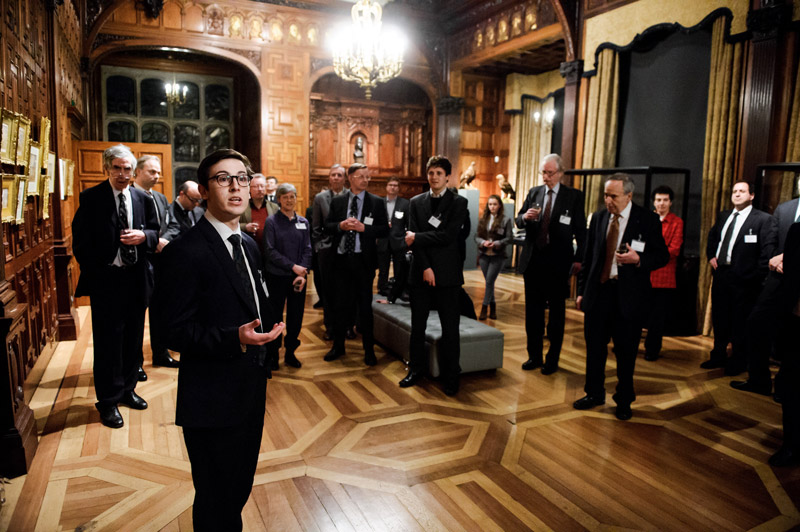In a dramatic reversal of 2,400-year decision, Socrates is acquitted at Supreme Court
Read the students’ account here.
‘Je suis Socrates’ was the final ringing line from Sally Howes QC in defence of Socrates at a mock trial held at the UK Supreme Court yesterday (30 September) in support of the charity Classics for All.
Lord Toulson, one of the Justices of the Supreme Court, presided over the occasion, where Socrates’ lawyer sought to argue that the Greek philosopher – something of a political dissident in his day – should not have been found guilty of “not believing in the gods of the state” and corrupting the minds of young Athenians.
The event was organised by the Lawyers Group of supporters of Classics for All, which aims to extend and enhance the teaching of classical subjects in state schools.
Lord Toulson’s first decision from the bench was to appoint the audience of some 60 UK citizens as the jury. Anthony Speaight QC was Counsel for the Prosecution with Richard Eschwege as Junior Counsel. Sally Howes QC acted for the Defence.
The jury was treated to advocacy of the highest quality on each side. In the end, they acquitted by a large majority – far larger than that which had originally convicted Socrates – perhaps influenced by the defence’s passionate appeal to Socrates’ right to freedom of expression.
Summing up, Lord Toulson told the jury that ‘this successful appeal, quite some time after Socrates’ alleged wrongdoing against the state and subsequent death, is a sobering reminder of the concept that justice cannot be suppressed. It also proves the point that in every trial there is a system of justice itself on trial, and in this case, demonstrated the insights into human behaviour that can be gained from studying classical civilisations.’
After the decision Nicholas Barber CBE, Chairman of Classics for All, explained the importance of teaching classics in both primary and secondary schools to increase educational standards. Anna Bell, Head of the London Classics Hub at St Marylebone School described the enormous growth interest in learning classics amongst pupils at St Marylebone and associated schools, three of whom were present.
Dr Peter Jones, a founder of Classics for All who attended the event noted: ‘The ancient charge against Socrates was that he introduced new gods and corrupted the young, the modern one, resonating with contemporary arguments about limits to freedom of speech, that he was guilty of treason for his anti-democratic and pro-Spartan sympathies’.
Sir Francis Jacobs KMCG QC, Chairman of the Lawyers Group, concluded afterwards: ‘This was a splendid event, combining excellent advocacy, fine judging, much historical interest, and great entertainment’.

